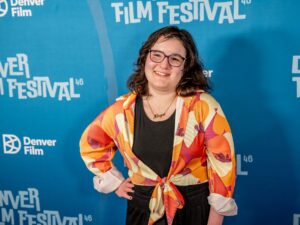Inclusion on the Dean’s List in her graduating class at Queen’s University, Schulich Leader Nominee, high school athlete – Primrose Chareka is your classic over-achiever. She currently works as a software developer at Citibank – a huge accomplishment when you think about how under-represented women are in the technology field. All of these things are resume builders, but they do not necessarily make someone inspirational, but Primrose Chareka is that too.
Chareka was born in Harare, Zimbabwe and moved to Canada when she was four-years old settling in Antigonish, Nova Scotia when she was seven. Many immigrants that come to Canada struggle for years, but Chareka’s parents grew out of poverty and she was inspired by their strong work ethic. Settling in Antigonish turned out to be a blessing in disguise when at the age of 14, Chareka lost both of her parents and the community took her in.
Education became her way of honouring her mother’s legacy, but Chareka also made giving back a priority. She even took the time to inspire students with her own love of learning. She gave a speech to the incoming Shad cohort in 2020. Chareka credits Shad – a Canadian summer STEAM enrichment program for high school students – as being instrumental in her own success.
She is insightful and wise beyond her years. When we briefly discussed COVID-19 and the impact that it was having, here is what she had to say:
“We are truly living history and nothing in history ended quickly.”
As someone who has overcome the odds, is part of an under-represented, visible minority, a member of the LGBTQ community, a woman in STEM, for her intelligence and leadership ability, Primrose Chareka is our latest #WomenInspiringWomen.

How did immigrating to Canada and growing up in a small town shape you?
What really struck me about growing up in a small town like Antigonish was the sense of community. Everybody looks out for each other, from neighbours to teachers. Growing up in a small community instilled a real value for people. You know who your friends and family are, but you still want to reach out and help others. That is something that you don’t always grow up in the anonymity of a large city. That was the best part of living in a small community for me.
Your late mother, Ottilia Chareka, was an Associate Professor in the Faculty of Education at St. Francis Xavier University. What impact did she have on your own pursuit for excellence?
My mother valued education more than anything. She grew up in rural Zimbabwe, where at that time, and to some extent today, educated women were an anomaly. Her grandmother didn’t go to school, her mother went to grade three and my mother’s father didn’t want to pay for her to go to school, because you have to pay to go to school in Zimbabwe. She went around to her neighbours and her teachers to ask for help paying for her tuition. Once she did get the tuition money, she had to walk five kilometres every day to and from school. She was the first female in the village that she lived in to have completed high school and, subsequently, her undergrad, masters and PHD.
My mother valued education and she wanted to make sure that it was accessible to other people. She worked with the Indigenous community in Nova Scotia to give them access to more and better education. It made me realize that the worst thing that I could do to her was to not value my education and not give 100% because so many people don’t have that opportunity. People growing up in Canada don’t understand the privilege of simply going to the third grade. That is why I chose to never take education for granted and to put the work in, because it’s a gift, so why not get as much education as you can, while you can.
Shad Canada’s program attracts students with high aptitudes for risk taking, curiosity, excellence and resilience, and prepares them to take on social and economic challenges. Tell us about how you got involved in the program and what you learned from it?
My sister, who is ten years old than me went to Shad when she was in high school and she recommended that I apply. I love Antigonish, but the community loves sports more than anything. I was into sports – basketball, soccer and rugby – but I was also really into learning. The beautiful thing about a small community is that a lot of the bullying that you hear about at larger schools doesn’t happen. But, there also wasn’t the same support for kids who valued academics over athletics.
For me, going to Shad meant going to a place where it was cool to be smart. Even though I have always valued education, I don’t think I ever looked at it that it was cool to be smart. From then on, it because my number one focus. It really shaped the way that I wanted to live my life. I wanted to focus on learning and education. I’m a big advocate for sports but I think that part of your life will end and the question is what’s next? When you focus on academics, anything can be next.
How do you think Shad prepared you for higher learning and your career today?
Shad was a really rigorous program with material that wasn’t typically covered at high school. It made you think, “Do I want to learn about things outside of my comfort zone or will I not be engaged?” In a community where everybody is engaged it really forces you to want to learn things that are difficult. I think in university and in your day-to-day work if you are being challenged, it means that there are things that you don’t know. Your question then becomes, “Do I want to take the initiative to learn something or do I want to be complacent?”
I think for me, the biggest thing that I took out of Shad was that you can’t stop learning and you shouldn’t be complacent. If you pursue more knowledge, great things will happen. That is what Shad tries to instill with all of their different activities and games. It was interactive learning where the more that you learned, the better you became at certain activities. It wasn’t who was the smartest – it wasn’t comparative – it was your baseline at the beginning versus your baseline at the end of the program.
Women make up approximately 23% of science and technology workers in Canada. Black women are even more under-represented. What do we have to do to get more women, and in particular, black women into STEM careers?
That is a massive question. There are so many socio-economic factors that come into play. My graduating class had two female black students which is low. It was 30% female which is higher than what I expected. I was a TA for first year students when I was graduating and that class was about 50/50 men and women, which was amazing to see. There is progress being made, but there is still a lot of work to be done.
The biggest thing is getting to this demographic of individuals as early as you can. I was fortunate to have a household that focused so much on education. I think that those are your building blocks and it’s never too late. A lot of programs in middle school and high school have a huge impact, the way that Shad did for me, but we need to put a bigger focus on getting elementary school-aged students engaged. I think that’s when your life starts to take form. Coding camps for girls and different classroom experiences are where the changes needs to be made.
What advice do you have for women interested in pursuing careers in STEM?
Your gender reveals nothing about what your brain is capable of. I think a lot of women are intimidated and think am I smart enough? Am I resilient enough? We need to see ourselves as why wouldn’t I be smart enough? Why wouldn’t I be resilient enough? I think if we take that approach, it gives us more room to try as opposed to giving in to the fear of failure.
You and your sister Patricia gave back to the community through a photography exhibit online in 2017. The proceeds went toward an affordable housing initiative for youth coming out of the foster care system. Why was it important to you to give back?
I would not be where I am today if it wasn’t for the community that took me in plus the amazing foster family that took me in as well. They are still my family today. A lot of people growing up in [foster] care don’t always get that sense of community and that sense of belonging. Everybody deserves the chance to make their dreams come true and unfortunately a lot of people that end up in the foster system don’t get that chance. Because I was given that opportunity, it is my responsibility to do what I can for others that are experiencing the same things that I did.
You have said that the difficulty of grief is part of the beauty of it. What did you mean by that?
You can’t grow unless you are challenged. Grief is one of the most challenging things that you can overcome because there is no fixing what often causes grief. You cannot bring somebody back into your life who has passed away. You are forced to be resilient whether it takes you a year, five years or ten years to move on. At the end of it, you have to be stronger than when you began. For a lot of things in life, that isn’t necessarily the case. Grief is this thing where you become better because of it, and it’s hard to see that in the moment, but when you are on the other side of it, you can appreciate the person that it has turned you into.
Who inspires you?
I have to say that it is my sisters. I have three older sisters and we’ve all grown in so many different ways. My sister Patricia ended up creating her own business. It took my sister Patience a little longer to figure out what she wanted to do, so she went back to community college and got a position working at a university. My oldest sister has done a little bit of everything. She worked for the United Nations through an internship and was in the Miss Canada Universe pageant.
My sisters don’t stop until they have what they want. When you see that kind of determination, it’s hard not to make that your goal. It’s about seeing someone who has struggled just as much as you did, and come out extraordinary. It helps you not doubt yourself because you know that if they did it, that you can do it. They have gotten a lot farther in life with less help than I had and they truly inspire me.








